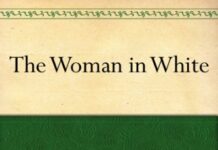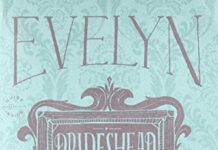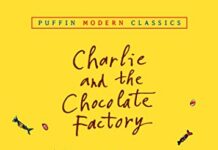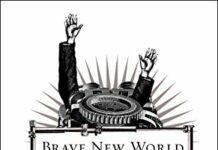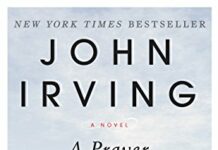
Ebook Info
- Published: 2016
- Number of pages: 376 pages
- Format: Epub
- File Size: 0.46 MB
- Authors: Wilkie Collins
Description
The Moonstone was described by T. S. Eliot as “the first and greatest of English detective novels.” Published in 1868, it is one of the two books (with The Woman in White) for which Collins is famous. Several incidents in the story are taken from the real life Constance Kent Road Case and the plot is Collins at his diabolical best. The Moonstone was immensely successful when it was first serialized in the Charles Dickens magazine All the Year Round in 1868. Many of book’s elements have since become classic features of the detective novel: the eventual conviction of the least-likely suspect; a bungling investigation led by local police and taken over by a more perceptive, slightly eccentric detective; the idea of a ‘mcguffin’ or object (in this case a diamond) that everyone wants and around which the plot pivots – to name but a few of the classic tropes first seen here. The story begins with a brief prologue describing how the eponymous diamond was captured during a military campaign in India by a British officer in 1799. The action moves quickly to 1848 England, where, according to the British officer’s will, the diamond has been given to one of the soldier’s young relatives, Rachel Verinder. Rachel wears the stone to her birthday party, but that night it disappears from her room. Was it stolen by a relative? A servant? And who are these three Indian men who keep hanging around the estate? The intriguing and absorbing plot is told from the point of view of multiple characters – fracturing the narrative in a structure with built in suspense and a style that would be much imitated by later novelists.
User’s Reviews
There is no Editorial Review for this book
Reviews from Amazon users, collected at the time the book is getting published on UniedVRG. It can be related to shiping or paper quality instead of the book content:
⭐ This Kindle edition is unreadable. I can’t tell if it’s an OCR problem, or if it’s been machine-translated to another language and then back to English, or what. But the words just don’t make sense. See the attached screenshots. “The moon god turned into installation and worshipped.” “The 3 dad or mum priests followed and watched it in cover.” “I turned my returned on him; and we’ve now not spoken considering the fact that.” What?
⭐ First, a word about the Kindle file (which does not influence my rating). Every few pages I would get an error message that would throw me back to my home screen. The only fix was to download the file again from Amazon, which got me a few pages farther along. I tried to return the product, but I was unable to do so, nor to make contact with Amazon over the issue. It’s only $0.99, but it’s still annoying. I ended up finishing the book from paper copies.The stories move far too slowly for modern tastes, filled with pages of trembling emotional reactions to everyday events that quickly become tiresome. The books were originally written to be serialized in magazines and it shows. Each section begins by resetting the scenes and resolving the cliff-hanger from the previous section, then there’s lots of going to and fro and characters telling each other stuff the reader already knows, before a not-very-thrilling cliff-hanger to end the section.The plots themselves all involve young love, crimes from the previous generation, complex inheritance rules and worries about money. Although these kinds of stories were popular in mid-Victorian times, they were 100 years out of date in most respects when published. People do take trains now and then, but most of the transport is walking or horse-drawn. No one sends telegrams or sees a factory. No one has a job or interest unfamiliar to prior centuries. The social structure is thoroughly Georgian. Near-universal literacy seems to be assumed, but in other respects worldviews seem little changed since the 18th century.Characters are broadly and humorously drawn, but do not develop. The mood is all imposed by the narrators. Descriptions are pedestrian.I find it odd that people identify The Moonstone as the first detective novel. Collins’ earlier The Woman in White is a more conventional detective story, and there are many similar earlier examples of romantic novels with puzzles at the core and characters who steadily unravels the truth.But all of these lack important features that were supplied in Arthur Conan Doyle’s Sherlock Holmes stories and later works. There is no concept of playing fair with the reader, or of clues revealed to the detective and the reader at the same time. Crimes are not solved by either logic or psychological insight. There is no concept that the facts force one solution, nor that there is a single core solution that explains everything. Lots of loose ends remain at the end. These books are romantic novels with puzzling events and crimes that are eventually explained–and that the reader usually figures out long before the characters; not by logic or insight; but by figuring out the author’s style–not detective stories.
⭐ Something is very wrong with this version. I think that perhaps it was originally a foreign language translation, translated back to English,poorly.Let me give you a couple of examples:This Version:”My item is to give an explanation for the reason which has triggered me to refuse the right hand of friendship to my cousin, John Herncastle.”Penguin Version:”My object is to explain the motive which has induced me to refuse the right hand of friendship to my cousin, John Herncastle.”This Version:”…night and day to the end of the generation of guys”Penguin Version: …night and day to the end of the generations of men”This Version: “… the photos of the deities have been damaged in portions.”Penguin Version: “…the images of the deities were broken in pieces”Utter garbage.
⭐ There were so many aspects I thoroughly enjoyed in this book. The mystery has some great twists and turns as well as the various unique characters! The book is written from several character perspectives, which is fun for the most part. One character in particular though, was not so fun to listen too. She just went on and on and from an exhausting and close-mindedness religious mindset …..The first character reminded me so much of “Mr. Carson” on Downton Abbey that I really enjoyed reading anything from him.Since this was written in the latter half of the 1800’s, I anticipated a tougher read given how much are language has changed since then, but I was quite relieved and delighted that it was very easy to read.
⭐ Skip the Foreword and the Afterword and just enjoy the story. The Foreword and Afterward were written by two curmudgeons who evidently had no sense of humor, probably are English professors somewhere. I think Wilkie Collins was simply writing a good story to entertain his readers, and it was very funny indeed. I don’t believe he meant it to be some great social commentary about the British Empire, imperialism and race. The guy was trying to make a living and writing for serialization . Let’s face it, sometimes a cigar is just a cigar.
⭐ I read The Woman in White a few years ago and realized halfway through the book how awesome it was. I’ve been looking forward ever since to reading The Moonstone. I loved the writing, which is very similar to others of the time period, and the setting and premise gave me similar feelings to Haggard, Conan Doyle, Kipling, Verne, and Dickens in some ways too. While The Woman in White satisfied my love for a Gothic mystery, The Moonstone satisfied my love of a suspenseful, drama- filled adventure with the touch of the foreign or exotic spiritual story at its basis, adding to the mysteriousness.The characters were well-developed and enjoyable. Nobody beats the eminent Mr. Betteredge, who I pictured the entire time as Mr. Carson from Downton Abbey. His trust and reliance on the soothing and clairvoyant influences of Robinson Crusoe is absolutely delightful.The personage of Miss Clack was purely entertaining and I could see her being like a female cousin Collins from Pride and Prejudice, as well as similar to some of Dickens’ more flavorful characters.This book was written with every attention to detail and tied up in a satisfying way at the end. Highly recommended!
⭐ (Review for AmazonClassics and Dream Classics editions)Marilyn Manson has written, and I agree, that “occasionally, something will happen that will change your opinion of someone irrevocably, that will shatter the ideal you’ve built up…” This story, this very important novel of the policial genre, suffers from the length with which the characters narrate their own participation in the main event. It can be expressed in the formula e=mc2, where E is the tiredness of my energy, equal to the product of the mass of words they write, multiplied by the velocity of light squared. Gabriel Betteredge is a lovable butler, loyal and tolerant, but insists so much about Robinson Crusoe and the defects of his deceased wife that almost turns into a bully; Miss Clack is a cute woman that care about religion, but the extension of her chapters make her look as an egotistical fanatic. They are the most notorious examples, but I’d say it applies for almost all protagonists. In the same way the extraordinary Moonstone has a small flaw in its core I think this unnecessary length a small flaw in the core of a very interesting story.The policial genre maybe is the worst genre to review because it doesn’t admit spoilers, as the revelation of the mystery is the core of it. So I will limit to mention what is safe to mention. The book is about the loss of a big diamond hunted by three Indians that have sworn to their gods to watch it until return it to India. The circumstances of the mystery are explained with great detail and just some parts are insinuated but not totally hidden. Different protagonists tell their part of their story according to the chronology of the events. Among the parts I loved are:* The burning, in middle of the story, of a paper in which is written the name of the responsible of the loss of the diamond. We are so close to know it but it turn to ashes. It is, somehow, diabolical.* The intrusion of horror in the shape of a misshaped and wretched girl. There is a part where one of the protagonists almost feels her emerging from the sea water above the quicksands. A gloomy vision that is scarier than the idea of a cursed diamond.* The contrast of the polite British etiquette and ceremonies of the epoch with the outburst of the characters when the tension of the loss make them explode in outbursts of drama.* The twists, they are quite amazing, as in our modern TV series (the good ones, it is)There are some aspects that maybe are a tad far fetched as the way the characters seem to get in love quite easily; or the high horses from which some characters lecture others. Also there seems to be an ideological subtext, the one I cannot put my finger on; but I’d say Wilkie Collins seems to favor eccentric characters (i.e. Betteredge, Mr. Blake, Dr. Jennings) above religious or traditional ones (Miss Clack, the first police investigator, and the three Brahmin a bit) I know it is a strategy to divert the attention from real suspects to innocent ones, but I feel there is also some social denounce. Anyway, far from that century and country the answer is meaningless and it doesn’t deprive from the adventure to read this book. Maybe I could read it again, and that intention, in the policial genre that only survives one reading, is testament of how good it is.About the edition I read the AmazonClassics edition, and I compared it to the Dream Classics edition I had got time before. The AmazonClassics edition is by far the more enjoyable one: you have a clean and modern typography, excellent formatting, and the way to highlight the subtleties (cursives in AmazonClassics and capitals in Dream Classics) is less distracting. The only negative, in the AmazonClassics edition, is the reference to kindle versions of books mentioned. I love that function but the butler, Gabriel Betteredge, mentions Robinson Crusoe a lot, so it appears advertised in the AmazonClassics a lot too, I am not sure if it is possible to deactivate that option but nevertheless, I felt like Daniel Defoe had paid Amazon to get publicity for his book xD Curiously the mention of the important Confessions of an English Opium-Eater doesn’t trigger a link to any kindle version, what is a shame because it is a wonderful book if you love, as I do, the British 19th century literature. Those very minor nuisances aside the main advantage of the AmazonClassics edition is the presence of X-Ray, super valuable for policial genre in which you need to know who is who, so probably this is the best edition you can get.
⭐ I just received this book today, and am promptly returning it. It looks like it was printed in someone’s home. In fact, it says “Made in the USA, San Bernardino, CA, 04 May 2020” on the back of the final page of the book. There is no table of contents, introduction, or anything to indicate that an actual professional printer printed this edition of this book. It begins with the prologue straightaway. Also of importance is that the actual novel is supposed to be over 500 pages and this book only has 284 pages … so, there must be quite a chunk of the book missing or it’s the awfully microscopic print the amateur printer used that condensed it to 284 pages. Nevertheless, I am highly disappointed because I don’t expect this kind of amateur, printed on a home inkjet printer, quality to be sold by Amazon. I had to go ahead and reorder the book from a prominent bookseller instead to insure I get a quality, professional copy.
⭐ I’m an avid reader, and I absolutely LOVED this book!! The author, Wilkie Collins, was a contemporary and friend of Charles Dickens, and this novel was first published in episodes in one of Dicken’s periodical magazines. As a complete novel, it was first published in 1868. I mention the dates because it often so much surprised me at how current the thoughts and speech of some of the evidence-writers were; they could’ve come from the current age. The novel is written in “evidence” given by a number of witnesses to events in the case of a diamond, supposedly cursed, being given to a young woman on her 18th birthday, vastly admired, and then stolen on the very first night. Other witnesses recount the after events of the story.Personally, I got a real kick out of the names Wilkie Collins gave to his characters. There was the faithful servant, beloved of the family, named Mr. Betteredge. His name implied to me that he had a “better” angle on what was going on. The family name of the “wonderful Lady” and the young woman to whom the diamond was bequeathed is “Verinder”. I surmised that came possibly from “Verified”, ascertaining the truth, as by examination; proving the truth”. Miss Clack’s name suggests making or causing sharp sounds, while Mr. Bruff’s name brings to mind the attributes hearty, healthy, proud, rough in manner, and the words gruff, huff, bluff, duff, and so on. Godfrey Ablewhite-well with a name including “God”, “Able” and “White”, one would think of an able godly man of a white pure soul, and that’s found out to be a bit untrue. Well, you get my drift.I found this novel to be so very witty and clever, as well as smart, romantic, kind and compassionate, and cruel, too.Mr. Betteredge was my favorite character when I read his account. His wit made me believe that he would be as believable in 2019 as in the 1800’s. I just laughed at so much of what he said. Miss Clack, the eternal tract-hander, also was hilarious. All of the characters were well-developed.One thing I would caution: DO NOT READ THE INTRODUCTION BY SANDRA KEMP AT THE BEGINNING OF THE NOVEL UNLESS YOU ALREADY KNOW THE STORY. It has spoilers. Penguin should have put her introduction at the end of the novel. I know, then it wouldn’t have BEEN an introduction. At least they warn us.This is a wonderful novel that anyone, no matter how old or young, if they love good writing, will enjoy and cherish!
⭐ Just finished this novel and I’m quite torn between frustration and satisfaction. I am a big fan of “The Woman in White”, and it holds a dear place in my heart. Being that TWIW was the first Victorian novel I ever read, and set my heart on fire to Victorian novels. With that being said, I had high expectations for The Moonstone. Don’t get me wrong, I did like this book and DID NOT expect the person who had stolen it to be that person. Honestly I expected Dr. Candy. So that was a great twist. However my chief complaint on this novel is that it is just too long for what it is. A lot of parts seemed to drag, and some chapters even seemed completely irrelevant. Also, I personally found Rachel insufferable. However I do recommend this book as a great piece of Victorian literature and a must read. It just was not my favorite… sorry Wilkie!
Keywords
Free Download The Moonstone in Epub format
The Moonstone Epub Free Download
Download The Moonstone 2016 Epub Free
The Moonstone 2016 Epub Free Download
Download The Moonstone Epub
Free Download Ebook The Moonstone
